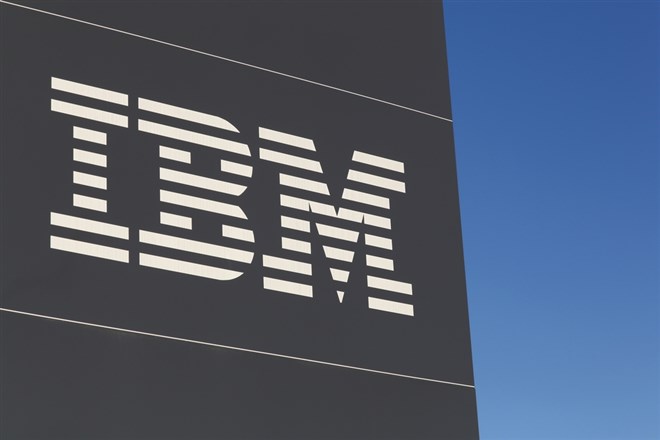
The last few months have given us a first-hand look at just what kind of impact cloud computing can have on the world. After being forced indoors for various lengths of time per state by the coronavirus, the ability to accomplish many of our normal everyday tasks right from home has proven intensely valuable. Valuable enough that IBM (NYSE:IBM) made some big gains recently by announcing new plans to put more focus on cloud-based operations.
A Whole Division Gone
IBM announced plans to sell off its “managed infrastructure services unit”, as the company calls it, which was regarded as a “legacy division” within the larger global technology services operation. The separation is expected to be complete sometime next year, and will be presented as a tax-free spin-off to shareholders.
With the infrastructure division about to be sold off, the company can focus its attention on the growth of hybrid cloud operations. It's a move that's expected to mean further growth in earnings as more use cases for hybrid cloud operations come about, and IBM has already been riding that wave for some time now.
Backing a Winner
The market responded to IBM's move with a deep satisfaction, sending shares upward 7.5% in early trading, and shares briefly hit highs not seen since June following the recovery from the early coronavirus sell-off.
The company is clearly following a winning pattern, as in the second quarter, the company saw revenues connected to cloud operations go up nearly a third, hitting $6.3 billion. Throw in sound sales from its other divisions, like cognitive software, and the early moves are bearing fruit. It's already had quite a positive effect; the recent moves are said to be connected to increases in free cash flow generation, which is up 15% over the same time last year. With the hybrid cloud market worth around $1 trillion overall, the value of IBM putting greater focus on this rapidly growing market is hard to understate.
Yet even the infrastructure operation can still be valuable; reports suggest that the new company, currently called NewCo, is set to focus its efforts on managing client-owned infrastructure, and bringing said infrastructure up to date. That alone is a market opportunity said to be worth $500 billion.
Analysts, meanwhile, continue to hold on to some skepticism in the face of IBM's changes. Our latest research finds the company still rated a “hold” at a consensus level. Price targets, meanwhile, aren't too far off of where the company's currently trading, with the consensus hovering at $139.07, a stone's throw from its current level of $132.72 as of this writing. In fact, there hasn't been a change in analyst perception of the company in months. The latest development was in mid-August when JPMorgan Chase and Co. boosted the price target to $148 from $135, and the last change in stance was from Argus in late July, going from “hold” to “buy.”
Branching Off to Tackle Two Terrific Directions
I have to give IBM credit on this one; it's made an amazing move. Why? Simple; the company can now simultaneously address two growing markets. “Hybrid cloud” is basically what it sounds like, and for those with kids in school, you'll have a better idea of what “hybrid” means when you hear it, because it's the same as what schools are using. “Hybrid cloud” basically means “one part cloud-based, one part on-premises based.” This means that businesses need to access systems kept in a central cloud, while at the same time need to do some of their own processing on site. Additionally, businesses need hardware to access the cloud-based material, so there's a clear demand for infrastructure. That's where IBM's latest move steps in to help meet that demand as well.
Remember NewCo? NewCo looks to be providing the necessary tools to not only access cloud-based operations, but also help companies do their own processing on-site. IBM, with NewCo, is essentially not only selling deeds to gold claims, but it's also selling the picks and shovels required to work the claims once users get there.
Two different revenue streams working at the same time is a fantastic idea, and IBM's got it in place. That's a recipe for great news to come, and we'll likely see some real value out of this soon.
Companies in This Article: